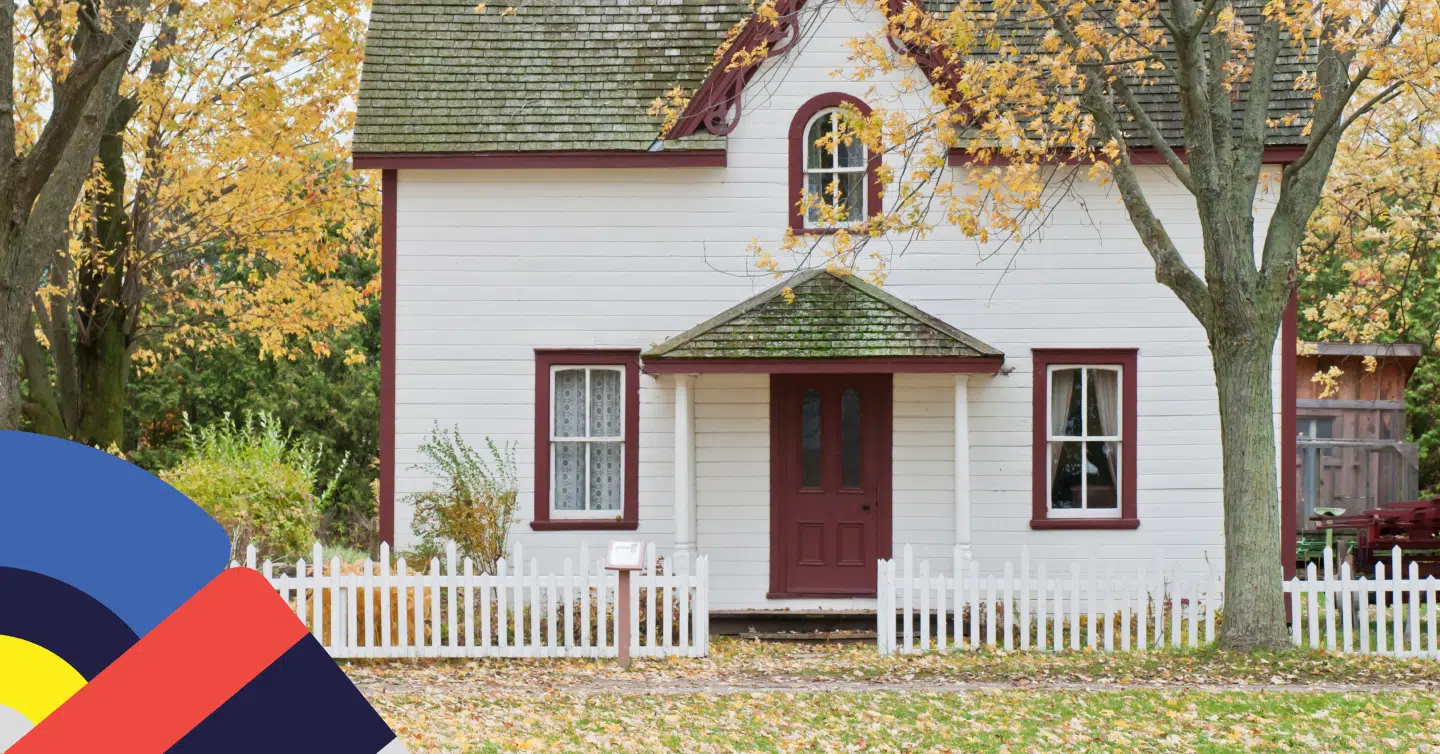Home Buying #Featured articles
Home Buying #Featured articles
Types of Home Ownership in Canada

Table of contents
In Canada, buying a home doesn’t always mean having the same type of ownership structure. How you legally own property and the registered title vary based on the property type and how you officially record ownership with the land registry in your province or territory.
Understanding the types of home ownership structures available in Canada and the implications of how the title is registered can help you avoid future title issues, estate surprises, and legal complications.
Key Takeaways
- Home ownership types include freehold, leasehold, condo/strata, and co-operative.
- Title registration affects how ownership is shared, transferred, and inherited.
- Adding someone to your home title carries risks, including losing full control over your asset, potential tax implications, and losing first-time home buyer rebates.
Different Types of Ownership in Canada
Homeownership in Canada can take several legal forms, each with distinct implications for legal control, financing, and estate planning. When buying a property, you must navigate the ownership type and the title registration. Understanding the ownership model and title registration is key to protecting your financial interests when purchasing property.
The type of property ownership determines the relationship between the property owner and the land or building. For example, freehold owners have complete ownership of both land and structure, while leasehold owners only hold rights to the building for a fixed term.
The type of title registration determines how the property is registered, for example, joint tenancy or sole ownership, which affects who legally owns and controls the property. This will also determine how the property ownership is divided and what happens when an owner on title passes away.
Types of Property Ownership
When purchasing real estate, it’s important to understand the structure of property ownership you’re entering into. The type of ownership you choose affects your rights, responsibilities, and how the property can be used, financed, or transferred in the future.
Freehold
Freehold ownership is the most common and straightforward type of property ownership. When you purchase a freehold property, you own both the building and the land it sits on. This gives you complete control over the property, including decisions related to renovations, landscaping, and how you use the space, with restrictions based on local bylaws and zoning regulations.
This type of property ownership offers the most autonomy but requires the highest level of responsibility. The property owner manages all property taxes, insurance, and repair costs for the entire property and the land it sits on, which can add up over time. The freedom and long-term appreciation value of owning a freehold property make this the most desirable form of homeownership.
Pros:
- Complete control over property use.
- No recurring monthly maintenance fees.
Cons:
- All maintenance costs and property taxes fall solely on the owner.
- Higher upfront costs.
Leasehold
Leasehold ownership is a less common form of homeownership. With a leasehold arrangement, you own the structure or home on the property but not the land it sits on. Instead, the land is leased from a third party, often a government body, indigenous community, or private landlord, for a set term, typically up to 99 years.
Since the land is excluded from the purchase, leasehold homes are often more affordable than freehold properties; however, this affordability comes with trade-offs. Leasehold properties can be harder to finance, especially if the remaining lease term is short.
As the land lease approaches expiry, property values may decline as renewal terms may be uncertain. Buyers of a leasehold property also need to understand any restrictions imposed by the landowners, which can limit renovations or resale options.
Pros:
- Lower purchase prices due to land exclusion.
- Can still build equity.
Cons:
- Lease expiry risk can affect resale value.
- Financing can be harder to secure.
Condo/Strata
Condominium (also known as strata in some provinces) ownership gives buyers ownership of a specific unit within a larger residential complex. These can be high-rise buildings or townhouse developments where you own your unit outright but share ownership of all common areas like lobbies, elevators, fitness rooms, green spaces, etc., with all other unit owners.
Condo owners are responsible for paying a monthly maintenance fee to cover the upkeep of the shared spaces, building repairs, insurance, and to keep funds in the reserve fund for future projects or repairs. These fees can vary significantly depending on the age of the building, amenities, and number of units.
Owners must also comply with the condo bylaws, which may include restrictions on renovations, rentals, and even pets. This type of ownership is popular in urban areas where affordability and space constraints make detached homes less accessible. While condos generally involve fewer personal maintenance responsibilities than freeholds, they come with less control.
Pros:
- Lower maintenance burden.
- Affordability in dense urban areas.
Cons:
- Lack of control over building decisions.
- Risk of special assessments for unexpected repairs.
Co-Operative
Co-operative housing or co-op ownership is a unique form of property ownership that differs significantly from other ownership structures. Instead of owning a specific unit, co-op residents purchase shares in a non-profit corporation that owns the entire building. These shares entitle the resident to occupy a specific unit and participate in property management.
Since co-ops operate on a collective ownership model, decisions about renovations, new members, and property rules are typically made democratically by the residents. Residents pay monthly fees for maintenance, property taxes, and building expenses, similar to condo fees.
Financing a co-op can be more complex since traditional lenders may hesitate to finance shares rather than a title-based real estate transaction. This can severely limit access to funding for this type of ownership.
Pros:
- Often more affordable.
- Strong sense of community.
Cons:
- Harder to finance (limited lenders).
- Resale restrictions may apply.
Find a better rate, and we’ll match it, beat it, or give you $500*.
*Conditions Apply
With nesto, it’s stress-free
Types of Title Registrations
How a home’s land title is legally registered also plays a critical role in determining your rights and responsibilities for the property. The type of title registration affects how ownership is shared, transferred, and inherited, especially in cases involving multiple owners or estate planning.
Registered/Sole Ownership
Registered or sole ownership means that one individual is listed as the property owner on the land title. This type of title registration is most common for single buyers financing or purchasing a home independently.
As the only legal owner, that individual has full control over decisions related to the property, including selling, refinancing, or who to pass it on to through a will. Sole ownership means that no one else has any legal claim to the property, even if it’s a partner or family member who contributes financially or lives in the property with the sole owner.
This type of ownership is straightforward for estate planning, but can lead to complications if proper legal arrangements are not made in advance. For instance, if a sole owner passes away without a will, the property could be subject to probate, which, based on provincial laws, could cause significant delays or disputes among potential heirs.
Co-Ownership
Co-ownership refers to two or more people sharing legal ownership of a property. This arrangement is increasingly becoming common in Canada, especially in expensive housing markets where friends, family members, or partners pool resources to afford a home.
While co-ownership can make buying more accessible, it also requires a clear understanding of how the ownership will be registered and each party’s rights. Two types of co-ownership arrangements exist: joint tenants or tenants in common.
Joint Tenants
With joint tenants, all owners hold equal shares in the property. If one owner passes away, their share automatically transfers to the surviving co-owner(s) through the right of survivorship. This type of co-ownership is common among married or common-law couples to ensure that if one partner passes away, the other will automatically inherit the property and avoid probate. Major decisions around selling or refinancing require the consent of all co-owners with this ownership structure.
Tenants in Common
With tenants in common, each co-owner holds a specific share of the property, which can be unequal. This type of co-ownership is better suited for friends, siblings or investment partners since each owner can sell or transfer their share at any time, independent of other co-owners. Upon the death of a co-owner, their share can be passed on to someone else through a will or, in the absence of a will, to the next of kin.
In Trust
In trust ownership refers to the legal arrangement where one party, known as the trustee, holds property on behalf of another party, or beneficiary. This means that the trustee is the registered owner on title but is legally obligated to manage the property in the beneficiary’s best interest, who ultimately benefits from the asset.
This ownership structure is commonly used for family and estate planning scenarios. For example, a parent may purchase a home and register it in trust for a child who is underage or not yet ready to manage the property themselves.
Partnership/Co-Ownership Agreement
A partnership or co-ownership agreement is a legal document used when two or more people purchase property together, often outside a marital or spousal relationship. While the ownership structure may be registered as joint tenants or tenants-in-common, the partnership agreement outlines each party’s financial and legal responsibilities beyond what is required on the title.
This type of agreement typically includes essential details like how much each person contributed to the down payment, how ongoing costs like mortgage payments and maintenance will be shared, and what happens if one party wants to sell or exit the arrangement. This agreement may also cover dispute resolution methods and timelines for reviews or buyouts.
A co-ownership agreement benefits arrangements between friends, siblings, or investment partners when purchasing property, as disagreements can quickly escalate without this document. A signed agreement protects everyone involved in the transaction and ensures that ownership expectations are aligned.
Can I Add Someone to My Home Title to Avoid Probate?
Adding someone to your home title to avoid probate may seem like a smart estate planning move, but it could lead to more risks. While this strategy is meant to bypass the lengthy legal process of probate, the consequences can be significant.
One of the most significant risks of adding someone to the title to avoid probate is losing full control over your property. Once another person is added to the title, they become a legal co-owner. This means you won’t be able to refinance, sell, or make decisions about the property without their formal consent. If the relationship deteriorates or they experience legal or financial troubles, your property could be affected by liens or a forced sale.
There are also tax implications to consider. Adding a non-spouse to the title could trigger immediate capital gains tax on the portion of the property transferred. While the goal may be to avoid probate taxes payable, the capital gains taxes could far exceed what would have been due with probate tax.
Additionally, adding your children to the title when they have not yet purchased a home could make them ineligible as first-time home buyers. This means they won’t qualify for incentives, rebates, or mortgage rules that benefit first-time buyers when they are ready to purchase their first home.
Frequently Asked Questions
What type of property ownership is most common in Canada?
The most common type of property ownership in Canada is freehold ownership. This structure gives owners full legal rights to the land and property and allows them to control how the property is used, maintained, transferred, or sold.
How does property ownership work in Canada?
Property ownership in Canada is governed by provincial land title systems that legally define who owns what and how. When someone purchases real estate, their name is registered on the property title, which is held and managed through a land registry operated by the province. This registration is official proof of ownership and outlines any legal claims attached to the property, such as mortgages or liens.
What’s the difference between joint tenants and tenants in common?
The main difference between joint tenants and tenants in common is in how ownership is shared and what happens when an owner dies. With joint tenants, all owners have an equal share in the property, and each owner has the right of survivorship. If one owner passes away, their share is automatically transferred to the surviving co-owner.
Tenants in common allow each owner to hold a share which doesn’t need to be equal. If one owner passes, their share becomes part of their estate and is passed on according to their will or next of kin in the absence of a will.
Final Thoughts
Whether buying your first home, co-buying with friends or family, or planning your estate, it’s important to understand the different types of property ownership and title registrations in Canada and how they may affect your plans today and in the future. Each ownership structure and title registration has risks, benefits, and long-term implications, so it’s worth assessing the option that best aligns with your financial goals.
For personalized guidance on your next home purchase, contact nesto mortgage experts today.
Ready to get started?
In just a few clicks, you can see our current rates. Then apply for your mortgage online in minutes!















